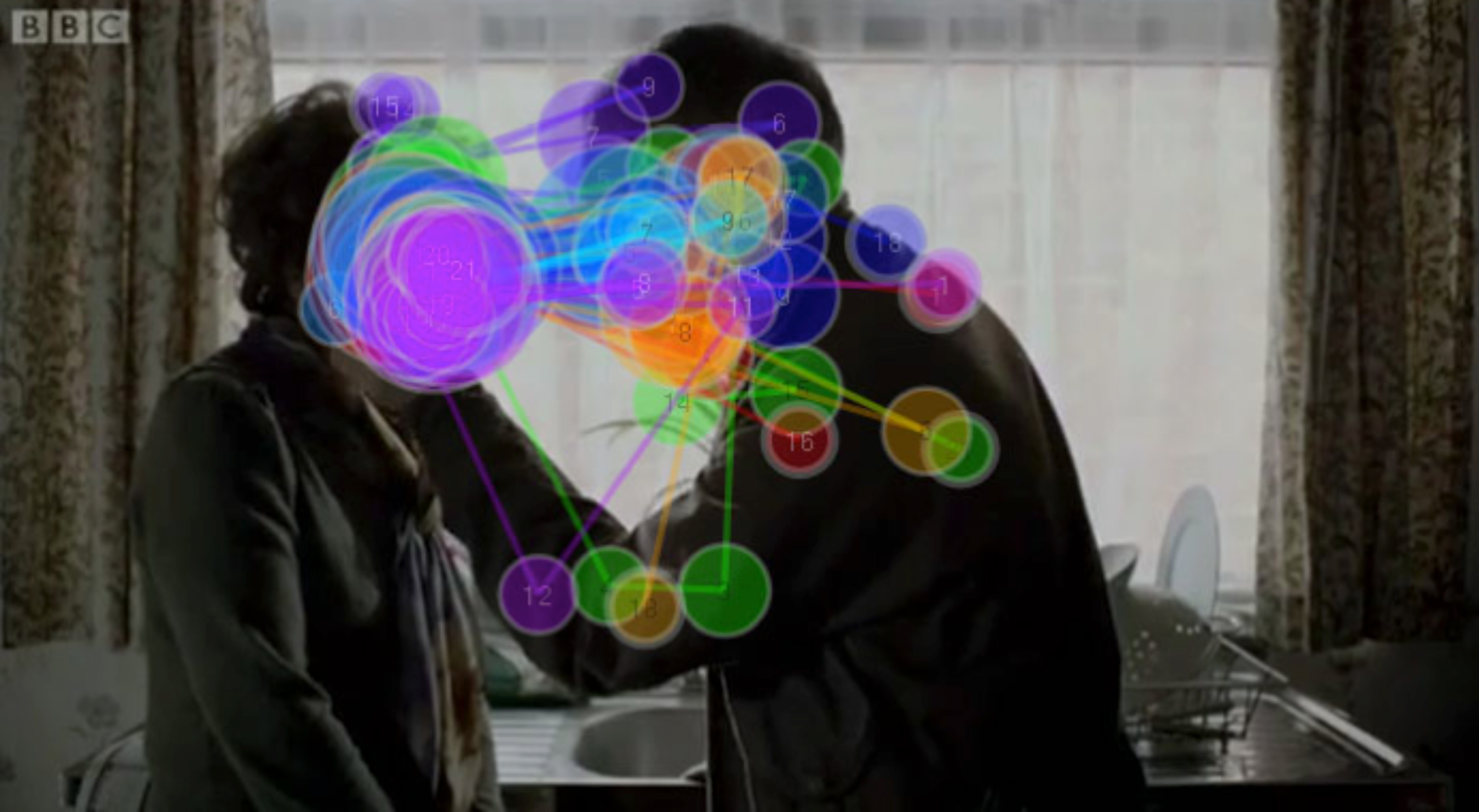Eye Tracking Sherlock: the Surveillance of Vision
Sean Redmond, Deakin University
In this masterclass talk I introduce the empirical technique of eye tracking viewers to ascertain what they attend to when watching the screen. Eye-tracking technology allows one to objectively track and record what viewers are looking at, for how long, and in what ocular sequence. The data visualization that is produced from eye tracking can then be both quantitatively measured and analysed, and mined for their inferences and phenomenological possibilities.
To illustrate this introduction to eye tracking, I will use data drawn from eye tracking the 'Holmes Saves Mrs. Hudson' sequence from the episode, A Scandal in Belgravia (Sherlock, BBC, 2012). My focus or Area of Interest will be on what I determine to be two types of gaze enacted and engaged in this scene. First, I will explore Sherlock through its forensic gazing and the way this creates the particular conditions for the way viewers become locked into particular gazing patterns and relations. Second, I will explore Sherlock through its haptic elements whereby the viewer is understood to both gaze at and touch (things) simultaneously. The small-scale empirical study involved a total of 13 respondents, comprised of a mixture of academics and undergraduate students at La Trobe University in Melbourne, Australia.
Note: The work comes out of the Melbourne-based Eye Tracking the Moving Image research group and the data visualisations were produced by Dr. Jodi Sita, ACU, Melbourne.
Approaching Audiences: Affective Methodologies (Revisiting Audiences Workshop)
Rosemary Overell (rosemary.overell@otago.ac.nz, twitter: @muzaken)
This workshop addresses questions of affect and its usefulness for audience studies. The intention of the workshop will be to push participants to consider the more-than-representational elements of audience responses to texts.
That is, I ask: what are the embodied intensities that are generated through audience entanglements with cultural production? And, more importantly: what are the cultural politics of such entanglements?
This workshop interrogates methodological means of approaching audiences and requires participants to submit a short summary of their own work (their PhD or an upcoming research project) for discussion in the session. I will also provide a short selection of reading for us to consider during the workshop.
Rosemary Overell completed a doctorate, majoring in cultural studies and Japanese studies, at the University of Melbourne in 2012. Her thesis, Brutal: Affect Belonging In, and Between, Australia and Japan's Grindcore Scenes, explored how fans of grindcore metal music feel 'at home' in scenic spaces. Rosemary's research included two years of ethnographic fieldwork in Osaka, Japan, as well as in Melbourne, Australia. Rosemary has taught for a number of years at the University of Melbourne in cultural studies, Asian studies, media studies and cultural geography. Between 2011 and 2013 she co-ordinated subjects on popular music cultures and lifestyle and consumer cultures.
In 2014, Rosemary published her book Affective Intensities in Extreme Music Scenes with Palgrave. Currently, she is teaching two second-year communications subjects and working on nikkeijin migrants and youth cultures in Nagoya, Japan. She is also interested in experimental ethnographic methodologies.

